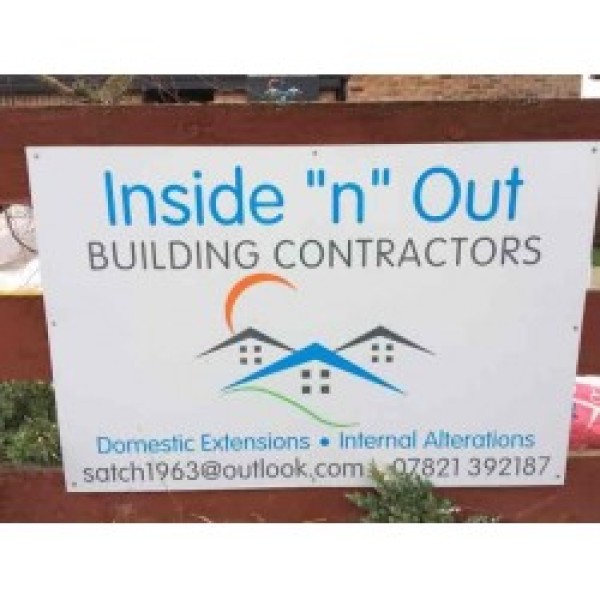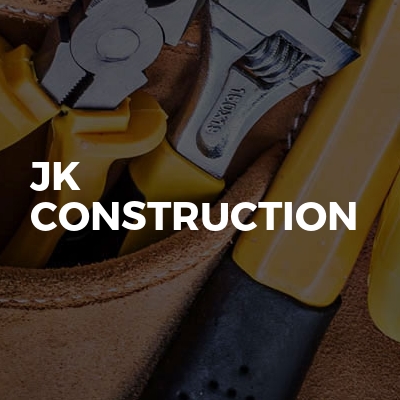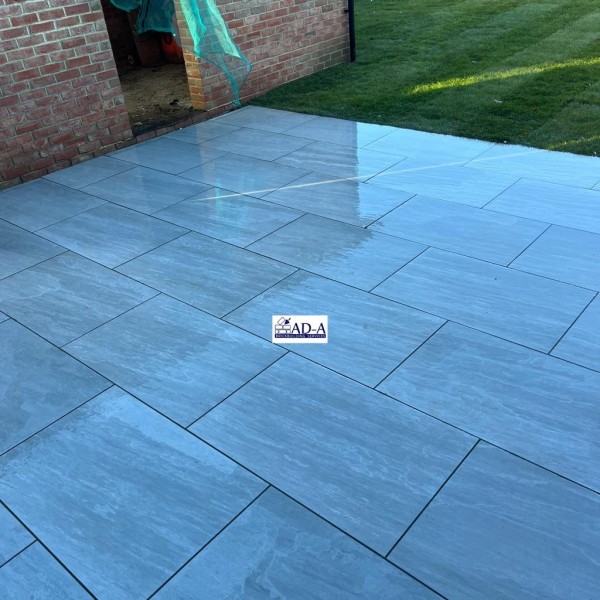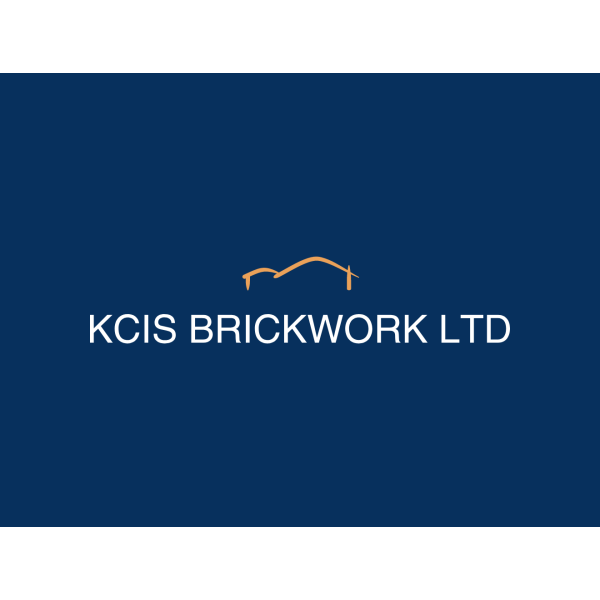Extension Builders in Royal Tunbridge Wells
Majestic Projects Limited is your go-to solution for all your building and renovation needs in Riverview Parkread more »
RF Property Maintenance & Building Ltd is a premier choice for all your building and maintenance needs in Perry... read more »
Welcome to Precision Contractors SE Ltd, your trusted extension builders and new build specialists based in the charming town o... read more »
Rae Property Services Ltd, nestled in the heart of Murston, is your premier choice for builders, driveway contractors, a... read more »
Welcome to Renovation Core Limited, your trusted partner for all your building needs in Halfway Houses and across Kent. As a le... read more »
Welcome to Inside 'N' Out Contractors, your trusted partner for all your building and renovation needs in Herne Bay and across Kent. As a... read more »
Welcome to ADM Improvements, your go-to experts for home improvement services in Kent. Nestled in the vibrant town of Maidstone... read more »
Welcome to KP Groundworks And General Building Ltd, your go-to experts for all construction and landscaping needs in Folkestone and the w... read more »
Mckays Building Services LTD is a premier choice for all your building needs in Newington and throughou... read more »
Welcome to BT Carpentry And Joinery, your go-to experts for all building and renovation needs in Eccles and across Kent. As a premier pro... read more »
Welcome to Garner Building Services, your trusted partner for all your building needs in Cellarhill and across Kent. As a family-run busi... read more »
Welcome to John Boyns Carpentry, your go-to experts for all your building and carpentry needs in Coxheath and across Kent. As a family-ru... read more »
Welcome to JK Construction, your premier choice for comprehensive building services in Chilmington Green and across Kent. As a trusted na... read more »
Welcome to LTLC Construction, your trusted partner for all your building needs in Silverhill Park and the surrounding areas of East Susse... read more »
Ad-a Brick Building Services Ltd is your go-to solution for all your construction and landscaping needs in Walde... read more »
KCIS BRICKWORK LTD: Premier Builders and Bricklayers in Westbere, Kent
Welcome to KCIS BRICKWORK LTD, your trust... read more »
Welcome to SG Maintenance, your go-to experts for Builders, Extension Builders, Property Maintenance, Property Refurbishment, and Kitchen... read more »
Integrity Golden Mountain Properties LTD is a distinguished construction company based in Bowmans, offering a comprehens... read more »
Welcome to Marshalls Brickwork Ltd, your premier choice for construction services in Bearsted, Kent. As expert extension builders, drivew... read more »
Search Extension Builders in places nearby
- Extension Builders in Ashford
- Extension Builders in Broadstairs
- Extension Builders in Canterbury
- Extension Builders in Chatham
- Extension Builders in Deal
- Extension Builders in Dover
- Extension Builders in Faversham
- Extension Builders in Folkestone
- Extension Builders in Gillingham
- Extension Builders in Gravesend
Understanding the Role of Extension Builders in Royal Tunbridge Wells
Royal Tunbridge Wells, a charming town in Kent, is renowned for its picturesque landscapes and historical architecture. As families grow and lifestyles evolve, many residents find themselves in need of additional space. This is where extension builders in Royal Tunbridge Wells come into play. These skilled professionals help homeowners expand their living spaces, ensuring that new additions blend seamlessly with existing structures.
The Importance of Choosing the Right Extension Builder
Choosing the right extension builder is crucial for the success of your project. A reputable builder will not only bring your vision to life but also ensure that the extension is safe, functional, and aesthetically pleasing. When selecting a builder, consider their experience, expertise, and reputation within the community. It's also wise to review their portfolio and speak with previous clients to gauge their satisfaction with the builder's work.
Experience and Expertise
Experience is a key factor when selecting an extension builder. Builders with a wealth of experience are likely to have encountered and overcome a variety of challenges, equipping them with the skills needed to handle your project efficiently. Expertise in specific types of extensions, such as kitchen or loft extensions, can also be beneficial, ensuring that the builder is well-versed in the nuances of your particular project.
Reputation and Reviews
A builder's reputation is often a reflection of their work quality and customer service. Look for builders with positive reviews and testimonials from satisfied clients. Online platforms and local community forums can be valuable resources for finding honest feedback about builders in Royal Tunbridge Wells.
Types of Extensions Offered by Builders
Extension builders in Royal Tunbridge Wells offer a variety of extension types to suit different needs and preferences. Understanding the options available can help you make an informed decision about which type of extension is best for your home.
Single-Storey Extensions
Single-storey extensions are a popular choice for homeowners looking to add extra living space without altering the overall structure of their home. These extensions can be used to expand kitchens, create new living rooms, or add dining areas. They are typically more affordable and quicker to build than multi-storey extensions.
Double-Storey Extensions
Double-storey extensions provide additional space on two levels, making them ideal for growing families. These extensions can significantly increase the size of a home, offering new bedrooms, bathrooms, or even a home office. While they require more planning and investment, the added space and value can be well worth it.
Loft Conversions
Loft conversions are an excellent way to utilise unused attic space. These conversions can transform a loft into a functional room, such as a bedroom, study, or playroom. Loft conversions often require less structural work than other types of extensions, making them a cost-effective option for many homeowners.
Basement Extensions
For homes with limited outdoor space, basement extensions offer a unique solution. These extensions involve excavating and converting the basement into usable living space. While basement extensions can be complex and costly, they provide a significant amount of additional space without altering the home's exterior.
Planning Permission and Regulations
Before embarking on an extension project, it's essential to understand the planning permission and regulations that apply in Royal Tunbridge Wells. Navigating these requirements can be daunting, but a knowledgeable extension builder can guide you through the process.
When Planning Permission is Required
In many cases, extensions require planning permission from the local council. This is particularly true for larger projects or those that significantly alter the appearance of the home. It's important to submit a detailed application, including plans and specifications, to ensure compliance with local regulations.
Building Regulations
Building regulations are separate from planning permission and focus on the safety and structural integrity of the extension. These regulations cover aspects such as fire safety, insulation, and ventilation. An experienced builder will ensure that your extension meets all necessary building regulations, providing peace of mind and avoiding potential legal issues.
Cost Considerations for Home Extensions
The cost of a home extension can vary widely depending on factors such as size, complexity, and materials used. Understanding these cost considerations can help you budget effectively and avoid unexpected expenses.
Factors Affecting Extension Costs
- Size and Scope: Larger extensions typically cost more due to the increased materials and labour required.
- Materials: The choice of materials can significantly impact the overall cost. High-quality materials may be more expensive but offer greater durability and aesthetic appeal.
- Labour Costs: Labour costs can vary based on the builder's experience and the complexity of the project.
- Location: The cost of living and demand for builders in Royal Tunbridge Wells can influence pricing.
Budgeting for Your Extension
Creating a detailed budget is essential for managing the costs of your extension project. Consider setting aside a contingency fund to cover unexpected expenses, such as unforeseen structural issues or changes in material costs. Working closely with your builder to establish a clear budget and timeline can help ensure the project stays on track financially.
Designing Your Home Extension
The design of your home extension plays a crucial role in its functionality and aesthetic appeal. Collaborating with an experienced builder and architect can help you create a design that meets your needs and complements your existing home.
Balancing Functionality and Aesthetics
When designing an extension, it's important to balance functionality and aesthetics. Consider how the new space will be used and ensure that the design accommodates these needs. At the same time, strive to create a visually appealing extension that enhances the overall look of your home.
Incorporating Natural Light
Natural light can significantly enhance the atmosphere of your extension. Consider incorporating features such as skylights, large windows, or glass doors to maximise natural light. This not only creates a bright and welcoming space but can also improve energy efficiency by reducing the need for artificial lighting.
Working with Architects and Designers
Collaborating with architects and designers can help bring your extension vision to life. These professionals offer valuable insights and expertise, ensuring that your extension is both functional and beautiful.
The Role of Architects
Architects play a crucial role in the design and planning of your extension. They can help you develop a comprehensive plan that meets your needs and complies with local regulations. Architects also provide creative solutions to design challenges, ensuring that your extension is both practical and visually appealing.
Choosing the Right Designer
When selecting a designer, consider their experience and style. Review their portfolio to ensure that their design aesthetic aligns with your vision. A good designer will listen to your ideas and work collaboratively to create a space that reflects your personality and lifestyle.
Project Management and Timeline
Effective project management is essential for the successful completion of your extension. A well-managed project ensures that the extension is completed on time and within budget, minimising stress and disruption to your daily life.
Setting a Realistic Timeline
Establishing a realistic timeline is crucial for managing expectations and ensuring that the project stays on track. Work with your builder to develop a detailed schedule that outlines each phase of the project. Be prepared for potential delays due to factors such as weather or supply chain issues, and build flexibility into your timeline to accommodate these challenges.
Communication and Coordination
Clear communication and coordination between all parties involved in the project are essential for its success. Regular meetings and updates can help ensure that everyone is on the same page and that any issues are addressed promptly. A dedicated project manager can facilitate communication and oversee the project's progress, providing peace of mind and ensuring a smooth process.
Ensuring Quality and Safety
Quality and safety are paramount when undertaking a home extension. Working with a reputable builder who prioritises these aspects can help ensure that your extension is built to the highest standards.
Quality Assurance
Quality assurance involves regular inspections and assessments to ensure that the work meets the required standards. A reputable builder will have a robust quality assurance process in place, providing you with confidence in the final result.
Safety Considerations
Safety is a top priority during any construction project. Builders must adhere to strict safety regulations to protect both workers and residents. This includes using appropriate safety equipment, following safe work practices, and ensuring that the site is secure and free from hazards.
Environmental Considerations
As environmental awareness grows, many homeowners are seeking sustainable and eco-friendly options for their extensions. Incorporating environmentally friendly practices and materials can reduce the environmental impact of your project and create a healthier living space.
Sustainable Materials
Choosing sustainable materials, such as reclaimed wood or recycled metal, can reduce the environmental impact of your extension. These materials often have a lower carbon footprint and can contribute to a more sustainable construction process.
Energy Efficiency
Energy-efficient design features, such as high-quality insulation, energy-efficient windows, and solar panels, can reduce energy consumption and lower utility bills. These features not only benefit the environment but also provide long-term cost savings for homeowners.
Frequently Asked Questions
- What is the average cost of a home extension in Royal Tunbridge Wells? The cost can vary widely depending on the size and complexity of the project, but it's essential to obtain detailed quotes from multiple builders to get an accurate estimate.
- Do I need planning permission for a home extension? Planning permission is often required for larger projects or those that significantly alter the home's appearance. It's important to consult with your builder and local council to determine the specific requirements for your project.
- How long does it take to complete a home extension? The timeline can vary depending on factors such as the size and complexity of the project, but most extensions take several months to complete.
- Can I live in my home during the extension process? In many cases, homeowners can continue to live in their homes during the extension process, although there may be some disruption. It's important to discuss this with your builder to understand the potential impact on your daily life.
- What should I look for in an extension builder? Look for a builder with experience, expertise, and a strong reputation. Review their portfolio and speak with previous clients to ensure they are a good fit for your project.
- How can I ensure my extension is environmentally friendly? Consider using sustainable materials and incorporating energy-efficient design features to reduce the environmental impact of your extension.
In conclusion, extension builders in Royal Tunbridge Wells play a vital role in helping homeowners expand and enhance their living spaces. By choosing the right builder and carefully planning your project, you can create a beautiful and functional extension that meets your needs and adds value to your home.
Send a message

























